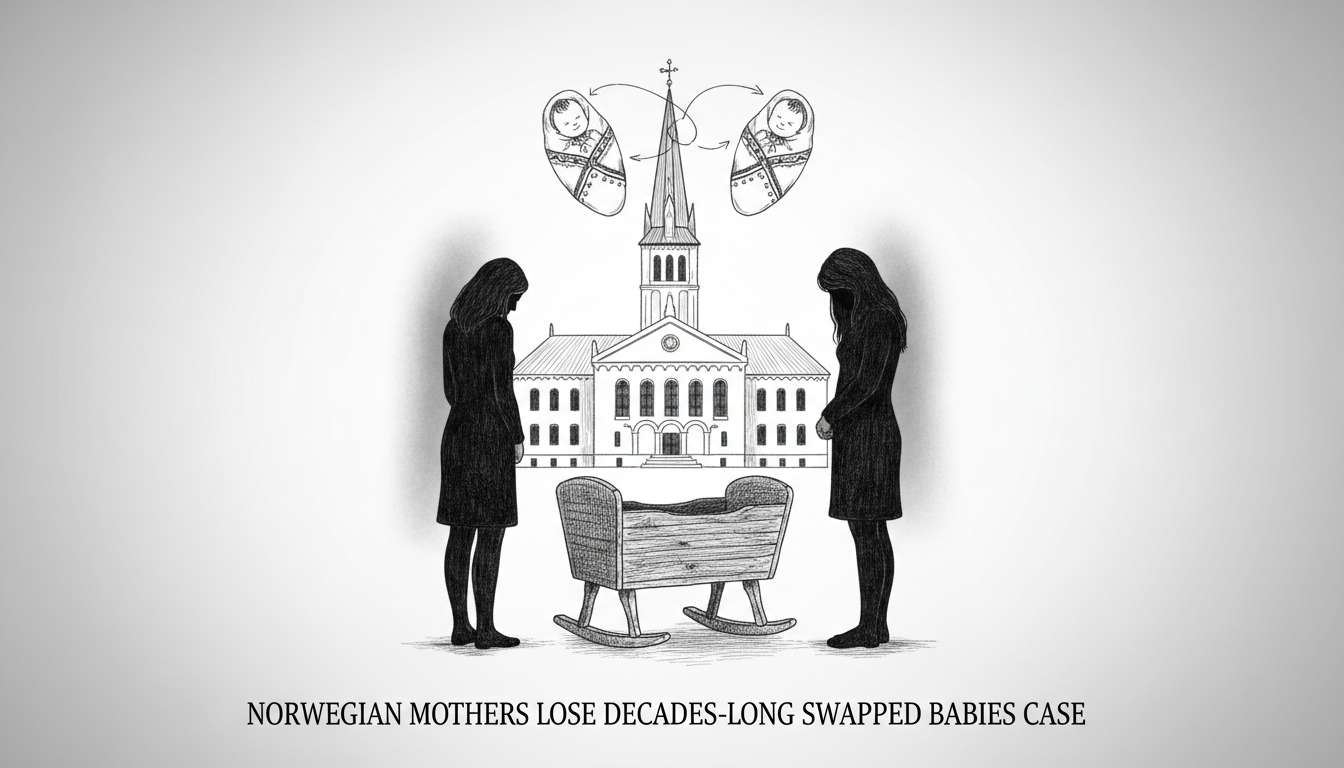Two Norwegian mothers have lost their legal fight against the state after discovering they raised each other's biological children for decades. The case dates back to 1965 when hospital staff accidentally switched two newborns at a maternity ward in Herøy municipality on Norway's western coast.
The women grew up with each other's biological parents without knowing the truth. A Norwegian appeals court recently cleared the state of human rights violations in this heartbreaking swapped infants case. The court found no basis for claiming the state failed in its duty to provide proper maternity care.
Legal representatives expressed deep disappointment with the ruling. The lawyer for one mother said they felt very let down by the outcome. This Norwegian baby switching incident remained hidden for nearly forty years before the full truth emerged.
One mother first suspected something was wrong in 1981. A blood test from the person she believed was her daughter revealed they couldn't be biologically related. She contacted authorities hoping to learn about her biological daughter's wellbeing.
Health officials identified five potential candidates who might have been switched at birth. In 1985, authorities closed the case without informing the possible swapped individuals. They determined the candidates likely lived under satisfactory social and material conditions.
The affected women described this decision as the most difficult aspect to accept. They argued that knowing the truth earlier would have changed their lives dramatically.
The case only resurfaced in 2021 when one woman took a DNA test. She uploaded the results to My Heritage, a genealogy website. This action finally revealed the decades-old hospital error and connected the two families.
This case highlights serious questions about historical medical practices and accountability. Norway's healthcare system has evolved significantly since the 1960s, but this ruling suggests limited state responsibility for past institutional failures.
The women's legal defeat sets an important precedent for similar historical cases. It demonstrates the challenges in holding governments accountable for medical errors that occurred generations ago. The emotional toll on both families continues years after discovering the truth.
International readers should understand that Nordic countries generally have strong healthcare systems. This case represents an exception from a different era rather than current standards. Still, it raises important questions about truth, identity, and institutional responsibility that transcend national borders.

